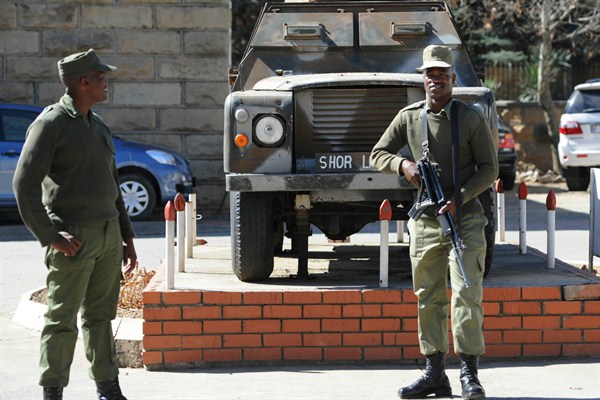It was once almost axiomatic that Africa was a continent of coups, with the military coup d’etat the principal mechanism for regime change. The figures told their own story, with over 200 coups and attempted coups between many countries’ independence in the early 1960s and 2012. The post-independence narrative became wearily familiar, with periods of civilian rule punctuated by military takeovers.
There was, however, a perceptible change from the 1990s onward as a result of the democratic wave that swept Africa following the end of the Cold War. Although fragile, incomplete and imperfect, this wave produced a popular intolerance for both coups and existing military regimes. This was reinforced by two more factors: a new international orthodoxy championing liberal democracy as the new governance norm, and the robust opposition of various African inter-governmental organizations to coups. This opposition first became evident under the Organization of African Unity, but it developed more forcefully under its successor, the African Union, since 2002. The AU has adopted the unambiguous position that any regime coming to power through a military coup will be immediately suspended from membership. That has been reinforced by the positions of various sub-regional organizations, led by the Economic Community of West African States (ECOWAS) and the Southern African Development Community (SADC).
Yet coups are not yet consigned to history in African politics, as evidenced by military takeovers in Mauritania, Guinea and Guinea-Bissau in 2008, Niger in 2010, and Mali in 2012. A decline in coups overall has not exactly meant the loss of military influence across the continent, either, as armies maintain power in various forms. State fragility, intra-state conflict or the potential for conflict all continue to ensure that the military is accorded a high-profile policy role in many African states, where new mechanisms and state bodies have often been created to accommodate military influence. Indeed, in conflict-scarred states, it is not uncommon for the military to be given an effective if informal political veto on issues such as military strategy, defense budgets, peace talks with rebel groups and foreign alliances.

